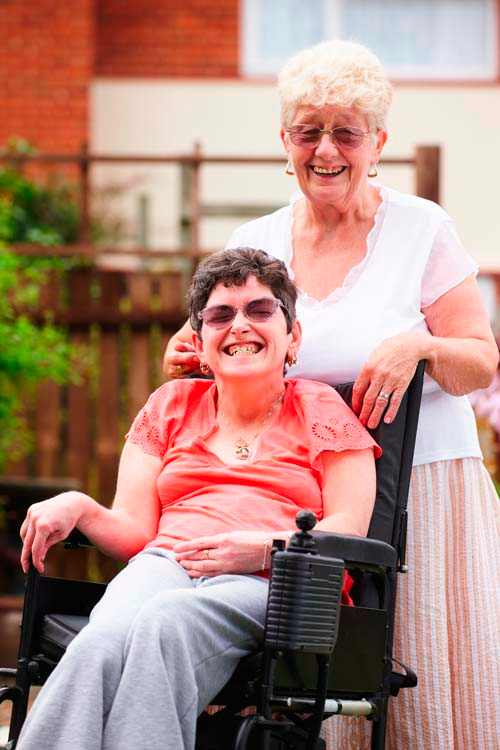Guardianship Conservatorships
After illness or tragedy, some adults need legal protection of their person and finances. We can help to secure their best interests through the appointment of a Guardian and/or Conservator.
Whether dealing with healthcare, financial decision-making, and all other important decisions, a person of legal capacity must be capable of receiving and evaluating information and must be capable of responding to people, events, or environments. When an adult lacks these capabilities, the person may be an "incapacitated person" as defined by the Virginia Code (64.2-2000)
In these circumstances, those related to or responsible for the allegedly incapacitated adult may request the Circuit Court to appoint a guardian for the person. A guardian (having the status of a guardianship) is appointed by the Circuit Court and is responsible for the personal affairs of the incapacitated adult. This means that after appointment, the Guardian makes decisions regarding the person's support, care, health, safety, education, residence, and therapeutic treatment.
In addition to securing the best personal interests of the adult, it may be necessary to secure the financial interests of the adult. This requires the appointment of a conservator. A conservator (having the status of a conservatorship) is also appointed by the Circuit Court and is responsible for managing the financial affairs of the incapacitated adult. This includes banking, real estate decisions, insurance, and all other financial transactions. Frequently, but not always, a Conservator also serves as Guardian, functioning in a dual role for the best interests of the incapacitated adult.
In order to obtain a guardianship or conservatorship, an adult or organization must file a Petition for Appointment of a Guardian and/or Conservator (Virginia Code 64.2-2002). This is a complex procedure, usually requiring the assistance of an attorney with experience in Guardianships and Conservatorships. Consider that a Petitioner's legal expenses in this process may be paid for out of the incapacitated adult's assets, providing for reimbursement of the Petitioner.
After filing the Petition and other pleadings with the Circuit Court where the allegedly incapacitated adult resides, the Court will appoint a lawyer called a Guardian ad litem to evaluate the allegedly incapacitated adult and to represent their best interests (Virginia Code 64.2-2003).
Then, the Court must determine whether the adult is "incapacitated" and in need of a Guardian, Conservator, or both. This must be proven by "clear and convincing evidence" (Virginia Code 64.2-2007).
Having served as Counsel for families and organizations in this process and having also been qualified by the Virginia Supreme Court as a Guardian ad litem, I have the experience to guide you through this process in securing the best interests of an adult for whom you are responsible. CALL (434) 447-3033 TODAY to schedule an appointment so that we can discuss your path forward in the guardianship and conservatorship process.
Whether dealing with healthcare, financial decision-making, and all other important decisions, a person of legal capacity must be capable of receiving and evaluating information and must be capable of responding to people, events, or environments. When an adult lacks these capabilities, the person may be an "incapacitated person" as defined by the Virginia Code (64.2-2000)
In these circumstances, those related to or responsible for the allegedly incapacitated adult may request the Circuit Court to appoint a guardian for the person. A guardian (having the status of a guardianship) is appointed by the Circuit Court and is responsible for the personal affairs of the incapacitated adult. This means that after appointment, the Guardian makes decisions regarding the person's support, care, health, safety, education, residence, and therapeutic treatment.
In addition to securing the best personal interests of the adult, it may be necessary to secure the financial interests of the adult. This requires the appointment of a conservator. A conservator (having the status of a conservatorship) is also appointed by the Circuit Court and is responsible for managing the financial affairs of the incapacitated adult. This includes banking, real estate decisions, insurance, and all other financial transactions. Frequently, but not always, a Conservator also serves as Guardian, functioning in a dual role for the best interests of the incapacitated adult.
In order to obtain a guardianship or conservatorship, an adult or organization must file a Petition for Appointment of a Guardian and/or Conservator (Virginia Code 64.2-2002). This is a complex procedure, usually requiring the assistance of an attorney with experience in Guardianships and Conservatorships. Consider that a Petitioner's legal expenses in this process may be paid for out of the incapacitated adult's assets, providing for reimbursement of the Petitioner.
After filing the Petition and other pleadings with the Circuit Court where the allegedly incapacitated adult resides, the Court will appoint a lawyer called a Guardian ad litem to evaluate the allegedly incapacitated adult and to represent their best interests (Virginia Code 64.2-2003).
Then, the Court must determine whether the adult is "incapacitated" and in need of a Guardian, Conservator, or both. This must be proven by "clear and convincing evidence" (Virginia Code 64.2-2007).
Having served as Counsel for families and organizations in this process and having also been qualified by the Virginia Supreme Court as a Guardian ad litem, I have the experience to guide you through this process in securing the best interests of an adult for whom you are responsible. CALL (434) 447-3033 TODAY to schedule an appointment so that we can discuss your path forward in the guardianship and conservatorship process.

